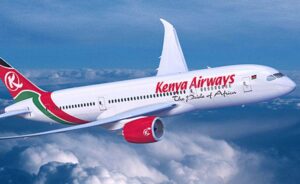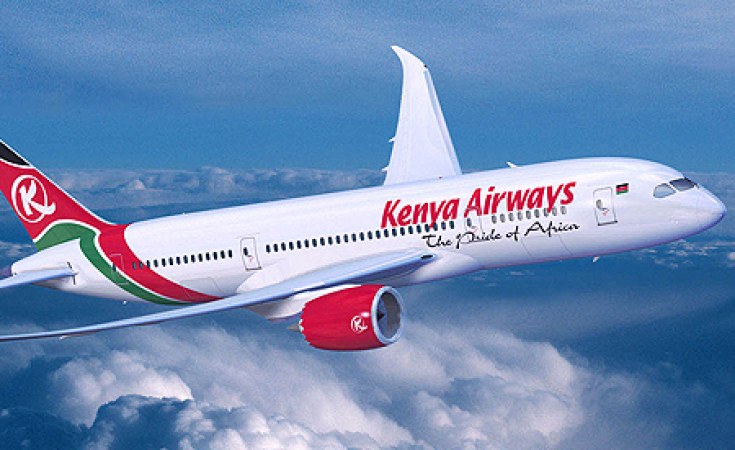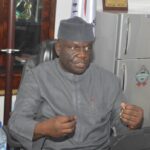
What many African governments have found difficult doing is operating successful and profitable business.
In Nigeria, the Nigeria National Shipping Line, Nigeria Airways Limited (NAL), NITEL and other businesses that were once successful eventually collapsed due to interference and corruption. Shortly before mobile phone network came to Nigeria, many technical officials of NITEL were induced with bribes before they would agree to repair landlines in people’s homes.
NAL was constricted with heavy debt burden before the Chief Olusegun Obasanjo regime liquidated it in 2003. Today Kenya Airways and South Africa Airways are suffering from protracted illness that has defied all medication. That may explain why the President of Kenya, William Ruto decided to take a radical step by selling government shares in the airline.
The latest information on Kenya Airways is that its shares have been suspended from trading for an additional year from January 5, according to a statement from the Nairobi Stock Exchange.
The airline was first taken off the stock exchange in 2020 following the government’s plans to take full ownership of the carrier as the Covid-19 pandemic decimated the global aviation industry. But the shares would stay off the market pending a restructuring which the government now hopes would lead to a sale to private investors.
“The extension of suspension seeks to enable the company [to] complete its operational and corporate restructure process,” the Nairobi Securities Exchange said in a statement recently.
According to reports by Leo Komminoth in the African Business, the government started a restructuring process to get the carrier out of its dire financial straits ahead of a potential sale of the airline. In 2022, 16 routes were cut and aircraft lease deals had been renegotiated.
The airline, led by CEO Allan Kilavuka, plans to cut its fleet from 32 planes to 27 and further optimise its network to cut 12 loss-making routes.
Reports indicate that since taking office in September 2022, President William Ruto has dropped plans to increase the government’s 48.9 per cent stake in the company, 7.8 per cent of which is owned by Air France-KLM, and the rest by private owners and banks.
In December, Ruto said the government was ready to sell its entire stake in the airline, as it was no longer willing to support the company. Kenya’s National Treasury said it would spend $283 million to support Kenya Airways in the financial year 2022/23, causing a significant strain on the state budget.
The Director of Research, Zenith Travels and the publicity secretary of Aviation Round Table (ART), Olu Ohunayo, told THISDAY that Kenya Airways has just shown that government participation in business is no business. Here is an airline that is wholly owned by the government, they went into partial privatisation, it failed. They got a core investor; they had issues because of too much interference. They also tried to merge the airline with the Kenya Airport Authority using the asset of the airport authority and the unions resisted it.
“Now the new President has come out publicly to say that he has no business with the airline, he is ready to let go and also, he is not just interested in having the Kenyan flag on an aircraft. That what he wants is that he wants an airline that will be of good business. And I think I support him. Some have criticized why the President is interfering. But I think it is important because government has always interfered in the progress of that airline. For them to have come and re-nationalise, you need to assure the new set of investors that you will not step in at all. It is not enough for just coming out to say it; you also need to ensure that a bill is passed to support that position. I think that is what will save Kenya Airways now, for them to get the necessary strategic investor that will come in and take some of the shares of that airline,” Ohunayo said.
He noted that Kenya Airways has a strong competitor in Ethiopian Airlines, which is just some meters away.
“So they need a strong strategic investor outside Africa to be able to compete in that hub, that East African hub with Ethiopian Airlines and that is the situation they found themselves now,” he also said.
On the planned Nigeria Air, Ohunayo urged that the establishment of the airline has to be transparent and follow due process so that it would have long lifespan when established.
“Well, I think getting certification for the new airline is not a problem; you can easily get certification for Nigerian Air carriers. What has been difficult is having commercial linkages, partnership that would be respected and acknowledged by other competitors in the industry and by the international community. And in doing this, the easiest way, the easiest route to such deals is having a foreign core investor. And that played out with Virgin Nigeria. If you noticed up to this moment none of the airlines have been able to match the number of commercial agreements they had within the two to three years they operated in Nigeria. So I think it is that area that makes people push for core investor. “Also, the core investor also gives access to spares, helps with credit facility, and also gets good ratings and credit based on their experience, base on their own credit facility which helps reduces cost. It is on that basis that they push for a technical core investor who can support and also help us to market what we cannot access. Preferably we should look for an investor outside Africa and probably reduce the percentage to about 30 per cent. Well they can start with 40 per cent but we must have it at the back of our mind that, that percentage should be trimmed down to have more Nigerians and more Nigerian operators,” Ohunayo said.

It is important to involve the Nigerian operators into the business and also build a second or third airline. It is not just to recommend that these airlines are operators, we need to give them that flag carrier status and support them on the international routes rather than abandon them. And again, for the airlines too, they also need to look at the ownership.
They need to spread ownership so that people will have that feeling that this is a national airline and also entitled to the national common wealth, Ohunayo advised.
He restated the fact that technical partnership would help to facilitate increased commercial agreement, adding that commercial agreement increases the bottom line, contributes to the bottom line of revenue, and increases the airline’s output and outlet.






